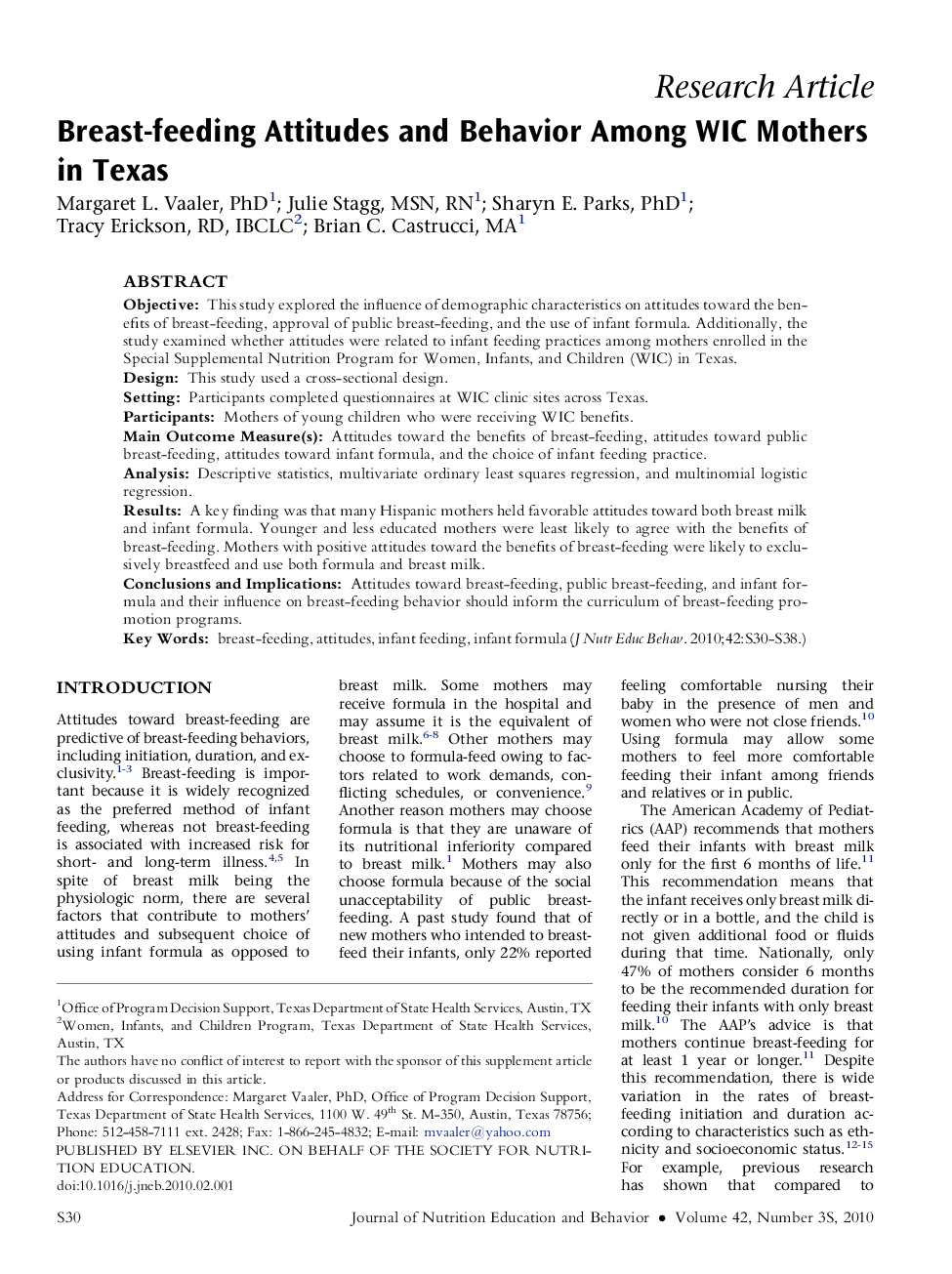| Article ID | Journal | Published Year | Pages | File Type |
|---|---|---|---|---|
| 362740 | Journal of Nutrition Education and Behavior | 2010 | 9 Pages |
ObjectiveThis study explored the influence of demographic characteristics on attitudes toward the benefits of breast-feeding, approval of public breast-feeding, and the use of infant formula. Additionally, the study examined whether attitudes were related to infant feeding practices among mothers enrolled in the Special Supplemental Nutrition Program for Women, Infants, and Children (WIC) in Texas.DesignThis study used a cross-sectional design.SettingParticipants completed questionnaires at WIC clinic sites across Texas.ParticipantsMothers of young children who were receiving WIC benefits.Main Outcome Measure(s)Attitudes toward the benefits of breast-feeding, attitudes toward public breast-feeding, attitudes toward infant formula, and the choice of infant feeding practice.AnalysisDescriptive statistics, multivariate ordinary least squares regression, and multinomial logistic regression.ResultsA key finding was that many Hispanic mothers held favorable attitudes toward both breast milk and infant formula. Younger and less educated mothers were least likely to agree with the benefits of breast-feeding. Mothers with positive attitudes toward the benefits of breast-feeding were likely to exclusively breastfeed and use both formula and breast milk.Conclusions and ImplicationsAttitudes toward breast-feeding, public breast-feeding, and infant formula and their influence on breast-feeding behavior should inform the curriculum of breast-feeding promotion programs.
